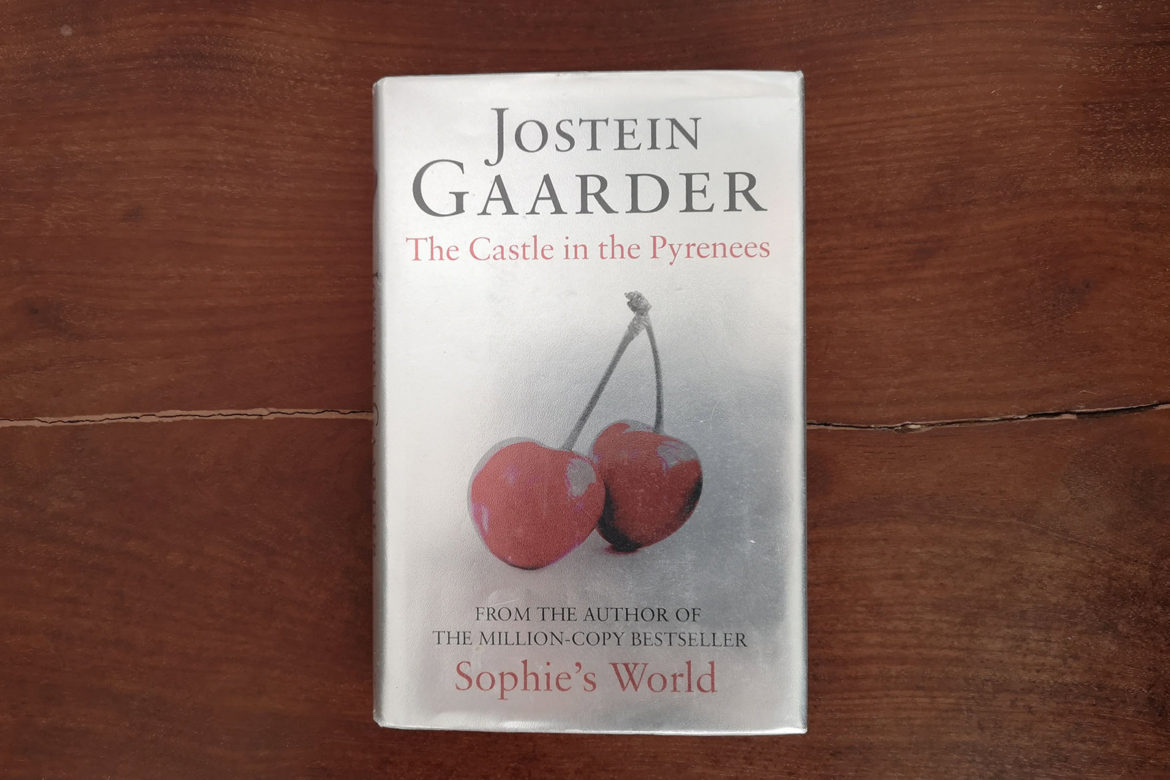I’m publishing some reviews of books I’ve read as part of a physical book group and here is my first post [spoiler alert: this post discusses The Castle In The Pyrenees by Jostein Gaarder].
I was interested in this book’s synopsis. I tend to enjoy stories that come out of chance meetings and past relationships – I’m a bit of an old romantic and like the idea that we can have an unbroken connection with someone, even when they’ve been estranged from us. However, this story didn’t really take the form of the rekindled relationship that I anticipated.
The story is set up well with Steinn and Solrun beginning their communication by email following their chance meeting after so many years apart, but I didn’t find this structure entirely convincing. I felt that Gaarder had maybe locked himself too rigidly to this format at the expense of the narrative flow. When you get to the end of the book, it becomes obvious as to why he told the whole story though exchanges of email – in order to get the twist. I doubted that Solrun was deleting the emails from Steinn as she requested that he do, but I wasn’t expecting her husband to find their correspondence after her death. It is actually his email to Steinn at the end of the book that I found the most interesting and convincing. Maybe that was the point Gaarder was trying to make – that neither Steinn or Solrun are reliable narrators. They both have their versions of what happened to them, how it impacted their relationship, their beliefs and who they became years later. Solrun says “We don’t know when we’re going to make our exits. But one day we’ll pass away from this carnival with all its masks and roles, and only a few transient props will remain after us, until they too are swept away.” It seems as though these emails with Steinn are one of the props she left behind.
The majority of the book felt like an existential tennis match where the two characters volley their opinions on faith and creation to each other via each email. These opposing views that are central to the book did encourage me to review my own beliefs – maybe that was simply the intention. These interactions unfortunately also felt like some unnecessary in-depth writing about the universe, when I wanted to hear more from both characters about what happened on the walk they took the day of their meeting. It also led to me being slightly annoyed by both characters – both kept reiterating their opinions in a variety of ways, without really moving forward. Again, that was probably the point Gaarder was trying to make, but that part of the story didn’t make for a particularly enjoyable read.
The incidents involving the Lingonberry woman and their differing opinions on what happened to their relationship, however, provided a much more interesting way of exploring their views. Again, their actions after they thought they’d hit the woman in the pink shawl weren’t entirely believable for me, but Solrun’s obsession with the woman in relation to her own mortality was – “The truth is that she was the same age as I am today, no more and no less”. When she sees Steinn she says that “all of a sudden it was as if I was the Lingonberry Woman. That was the unsettling feeling that came over me”. In the end, I was left wondering if Solrun had purposefully stepped out in front of a truck to test the theory that the Lingonberry woman was actually her revisiting herself from beyond the grave. Or was it that in death she would find immortality because the Lingonberry woman seemed to have done just that? She had said that “There is no death, Steinn. And there are no dead” – although it looks like she had second thoughts about when it came to the moment of her passing. Her husband described her look of fear, despite her adamant belief that her soul would live on after her death. It also seemed fitting that Steinn should be the one left alone to potentially mull this over afterwards, along with the reader. I can forgive the characters their meanderings in the middle of the book as this ending felt oddly satisfying, despite the unanswered questions.
Would I recommend The Castle In The Pyrenees? I think that would depend on the person who was asking for a recommendation. I can imagine many people running out of patience with both Steinn and Solrun and much is left to your own interpretation. However, it’s exactly those aspects that make it a great story for a book group discussion.

